Are you in the market for a new SUV but feeling overwhelmed by the sheer variety out there? Don’t worry; you’re not alone! SUVs come in all shapes and sizes, each catering to different needs and preferences. In this comprehensive guide, we’ll break down the various types of SUVs and explore their sizes, from subcompact to full-size. Let’s dive in!
Subcompact SUVs #
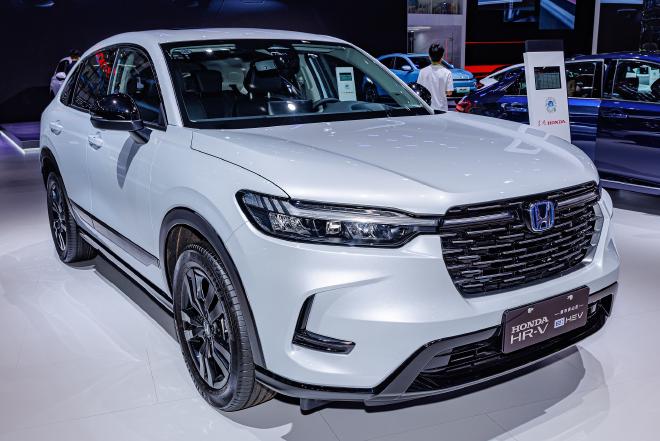
Let’s start with the smallest members of the SUV family: subcompact SUVs. These little powerhouses offer a perfect blend of agility, efficiency, and versatility. Ideal for urban dwellers and small families, subcompact SUVs boast compact dimensions that make them a breeze to maneuver in tight city streets. But don’t let their size fool you; they still pack plenty of cargo space and utility. If you’re looking for a fun and practical ride that won’t break the bank, a subcompact SUV might be just what you need.
Pros #
- Excellent maneuverability, perfect for city driving and parking in tight spaces.
- Good fuel efficiency, saving you money at the pump.
- Surprising cargo space and utility despite compact size.
Cons #
- Limited passenger space, may feel cramped for taller passengers or on longer journeys.
- Less towing capacity compared to larger SUVs.
- Some models may lack the power and performance of larger counterparts.
Size #
- Typically under 175 inches in length, subcompact SUVs are the smallest of the bunch. Despite their compact dimensions, they still offer ample cargo space and seating for five passengers.
Best Suited For #
- Urban Dwellers: Perfect for navigating through crowded city streets and squeezing into tight parking spots.
- Small Families or Individuals: Great for those who need a bit more space and utility than a sedan but don’t require a larger vehicle.
- Commute Warriors: Ideal for daily commuting and running errands thanks to their maneuverability and fuel efficiency.
Popular Subcompact SUVs #
- Honda HR-V
- Mazda CX-3
- Hyundai Kona
- Nissan Kicks
- Chevrolet Trax
Compact SUVs #
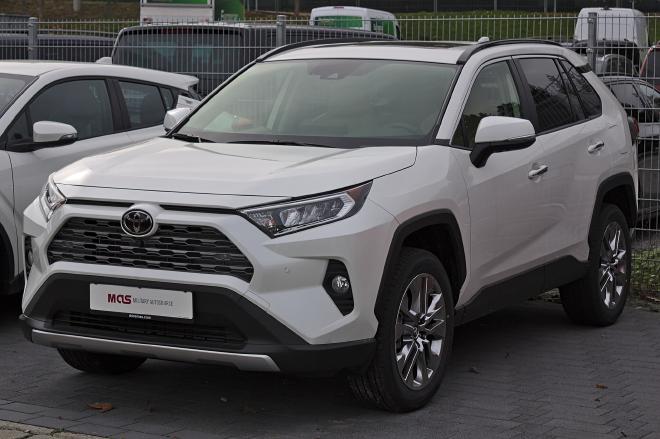
Next up, we have the ever-popular compact SUVs. These versatile vehicles strike a perfect balance between size and functionality, making them a top choice for many drivers. With more space and capabilities than their subcompact counterparts, compact SUVs offer ample room for passengers and cargo without feeling overly bulky on the road. Whether you’re tackling your daily commute or embarking on a weekend adventure, a compact SUV has you covered.
Pros #
- Versatile size, offering a good balance of interior space and maneuverability.
- Comfortable seating for passengers and ample cargo space for gear and groceries.
- Available with a wide range of features and options to suit different preferences and budgets.
Cons #
- Can feel a bit sluggish when fully loaded or towing heavy loads.
- Not as fuel-efficient as smaller vehicles, especially in city driving conditions.
- Some models may lack the off-road capabilities of larger SUVs.
Size #
- Ranging from around 175 to 185 inches in length, compact SUVs strike a perfect balance between size and versatility. They offer more room than subcompact models but are still easy to maneuver in tight spaces.
Best Suited For #
- Small Families and Couples: Offers a good balance of space and versatility for everyday use and weekend adventures.
- Outdoor Enthusiasts: Perfect for those who enjoy camping, hiking, or other outdoor activities and need space for gear.
- Urban and Suburban Drivers: Provides enough room for passengers and cargo while still being manageable in city traffic and parking situations.
Popular Compact SUVs #
- Toyota RAV4
- Honda CR-V
- Ford Escape
- Subaru Forester
- Jeep Compass
Midsize SUVs #
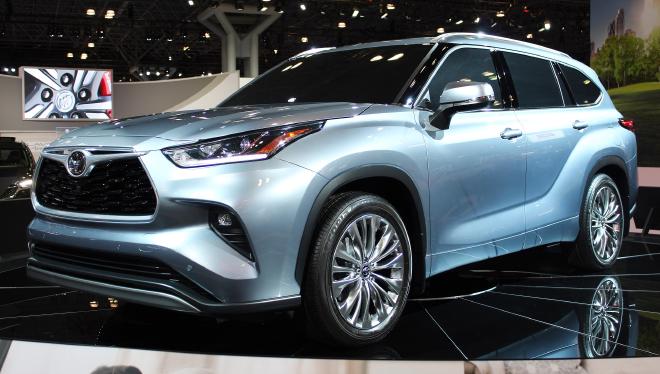
Moving on to the middle ground, we have midsize SUVs. As their name suggests, these SUVs offer a bit more room and power compared to their smaller counterparts. With seating for up to seven passengers and increased towing capacity, midsize SUVs are perfect for growing families or anyone who needs a little extra space. From carpool duty to cross-country road trips, these versatile vehicles can handle it all with ease.
Pros #
- Spacious interior with seating for up to seven passengers, perfect for families and carpooling.
- Strong towing capacity, making them ideal for hauling trailers, boats, or campers.
- Available with advanced safety features and technology for added peace of mind.
Cons #
- Larger size can make them more challenging to maneuver in tight spaces.
- Lower fuel efficiency compared to smaller SUVs, especially in city driving.
- Higher price tag compared to smaller models, both upfront and in terms of ongoing maintenance and fuel costs.
Size #
- With lengths ranging from approximately 185 to 200 inches, midsize SUVs offer even more space for passengers and cargo. They’re perfect for families who need a bit more room to spread out.
Best Suited For #
- Families: Offers ample seating and cargo space for larger families or those with older children who need extra legroom.
- Road Trippers: Ideal for long-distance travel thanks to their comfort, spaciousness, and towing capability for trailers or campers.
- Active Lifestyle: Suited for individuals or families with hobbies like skiing, biking, or kayaking that require hauling equipment.
Popular Midsize SUVs #
- Toyota Highlander
- Honda Pilot
- Ford Explorer
- Chevrolet Traverse
- Nissan Pathfinder
Full-Size SUVs #
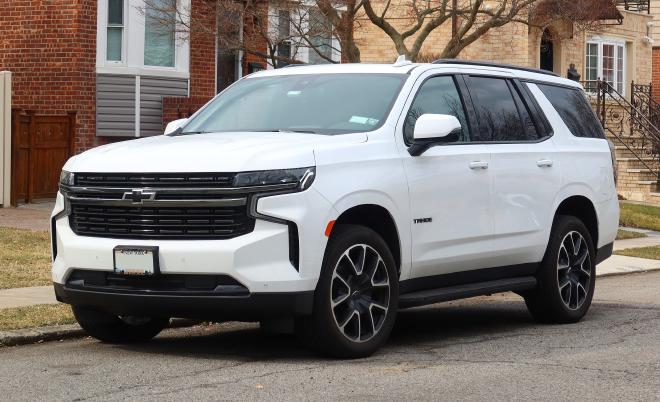
Last but certainly not least, we have the big boys of the SUV world: full-size SUVs. These behemoths offer unmatched space, power, and capability, making them a popular choice for large families, outdoor enthusiasts, and anyone with serious towing needs. With seating for eight or more passengers and cavernous cargo space, full-size SUVs are like your own personal command center on wheels. From hauling the kids to soccer practice to towing the boat to the lake, there’s nothing these giants can’t handle.
Pros #
- Maximum passenger and cargo space, ideal for large families or anyone who needs plenty of room to spread out.
- Robust towing capacity, capable of hauling heavy loads with ease.
- Available with luxurious features and amenities for a premium driving experience.
Cons #
- Bulky size can be difficult to maneuver in urban environments and parking lots.
- Lower fuel efficiency compared to smaller SUVs, especially in city driving conditions.
- Higher purchase price and operating costs compared to smaller models, including insurance and maintenance expenses.
Size #
- Clocking in at over 200 inches in length, full-size SUVs are the largest and most spacious of the bunch. With three rows of seating and massive cargo capacity, they’re ideal for large families, road trips, and towing heavy loads.
Best Suited For #
- Large Families: Provides maximum space for passengers and cargo, making it ideal for families with multiple children or extended family members.
- Towing Needs: Perfect for individuals who frequently tow trailers, boats, or horse trailers.
- Luxury Seekers: Offers premium amenities and features for those who prioritize comfort and style in their vehicle choice.
Popular Full-Size SUVs #
- Chevrolet Tahoe
- Ford Expedition
- Toyota Sequoia
- GMC Yukon
- Cadillac Escalade
Extra: Crossovers #
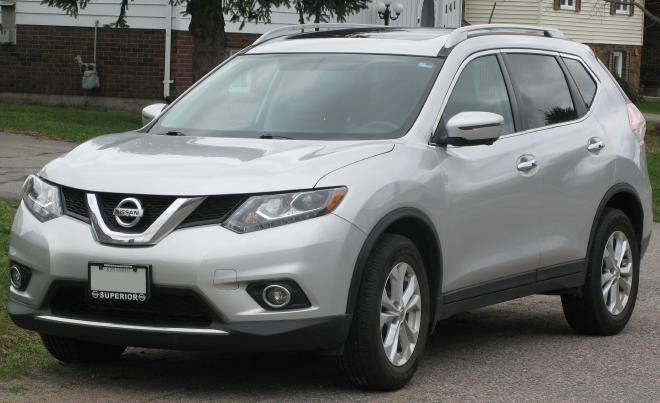
Crossovers, often referred to as Crossover Utility Vehicles (CUVs), occupy a unique space in the automotive world. They blend the best elements of traditional SUVs with the practicality and efficiency of passenger cars. Here’s how they differ from SUVs:
-
Platform: Crossovers are typically built on a car platform, also known as a unibody construction, whereas traditional SUVs are often built on a truck platform with a body-on-frame construction. This difference results in crossovers having a smoother ride and better handling, similar to that of a car.
-
Size: Crossovers come in various sizes, ranging from subcompact to full-size, similar to SUVs. However, they tend to have a more streamlined and aerodynamic design compared to the boxy shape of many SUVs.
-
Fuel Efficiency: Due to their car-based platform and lighter weight, crossovers generally offer better fuel efficiency than traditional SUVs, especially in city driving conditions.
-
Off-Road Capability: While some crossovers may offer all-wheel drive or off-road modes, they are generally not as capable off-road as traditional SUVs, which often feature four-wheel drive systems, higher ground clearance, and rugged construction.
-
Interior Space: Crossovers prioritize passenger comfort and cargo versatility, offering spacious interiors with flexible seating arrangements. However, they may have slightly less cargo space compared to similarly sized SUVs due to their sleeker design.
Popular Crossover Models #
- Toyota RAV4
- Honda CR-V
- Nissan Rogue
- Ford Escape
- Chevrolet Equinox
- Subaru Outback
- Mazda CX-5
- Hyundai Tucson
- Kia Sportage
- Volkswagen Tiguan
In summary, crossovers bridge the gap between traditional SUVs and passenger cars, offering the practicality and versatility of an SUV with the efficiency and driving dynamics of a car. They’re a popular choice for drivers seeking a comfortable and capable vehicle for everyday use, without sacrificing fuel economy or handling.
Conclusion #
Whether you’re in the market for a nimble subcompact SUV or a hulking full-size behemoth, there’s an SUV out there to suit your needs. By understanding the different types and sizes available, you can make an informed decision and find the perfect ride for your lifestyle. So go ahead, explore your options, and get ready to hit the road in style!
